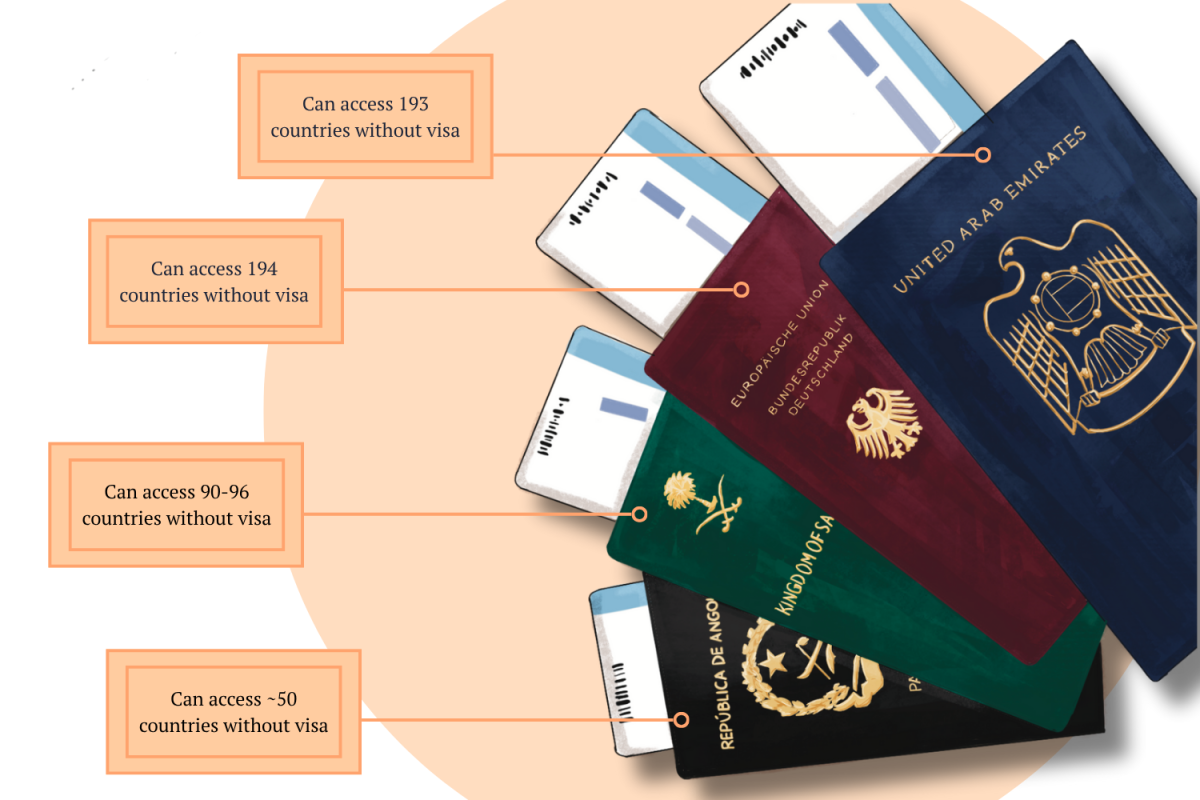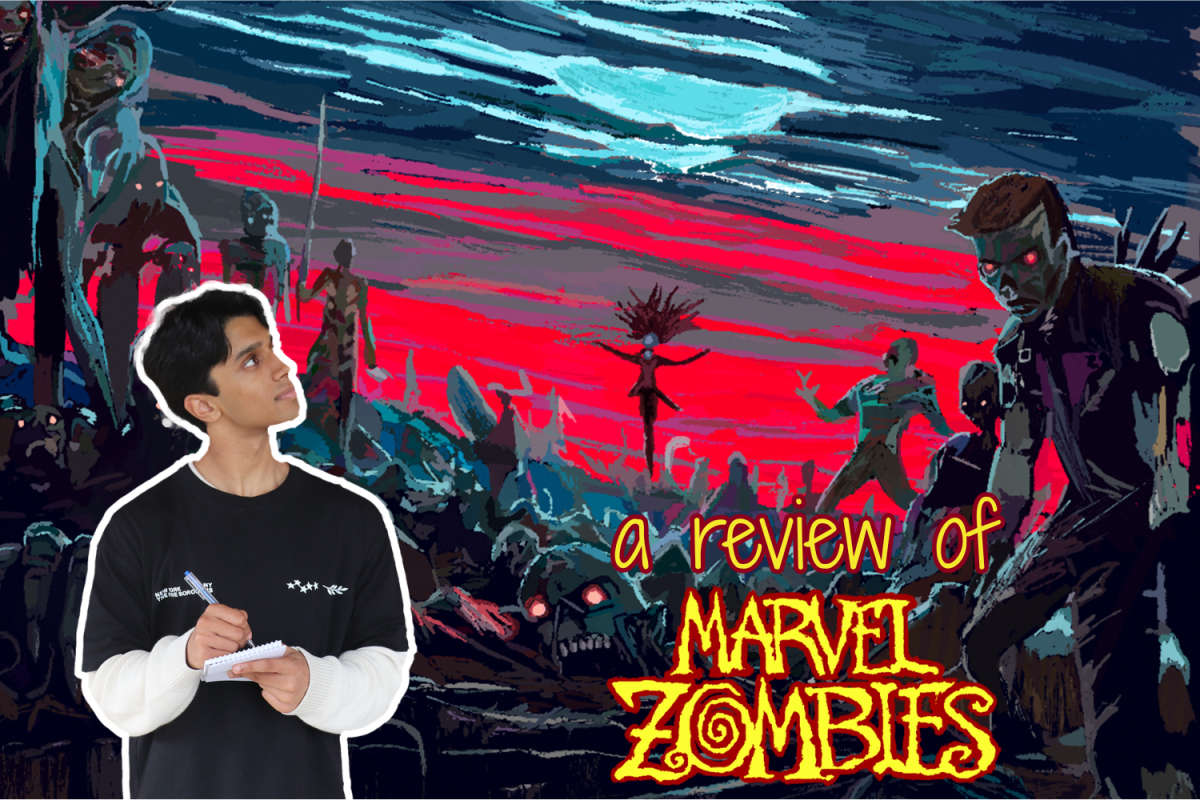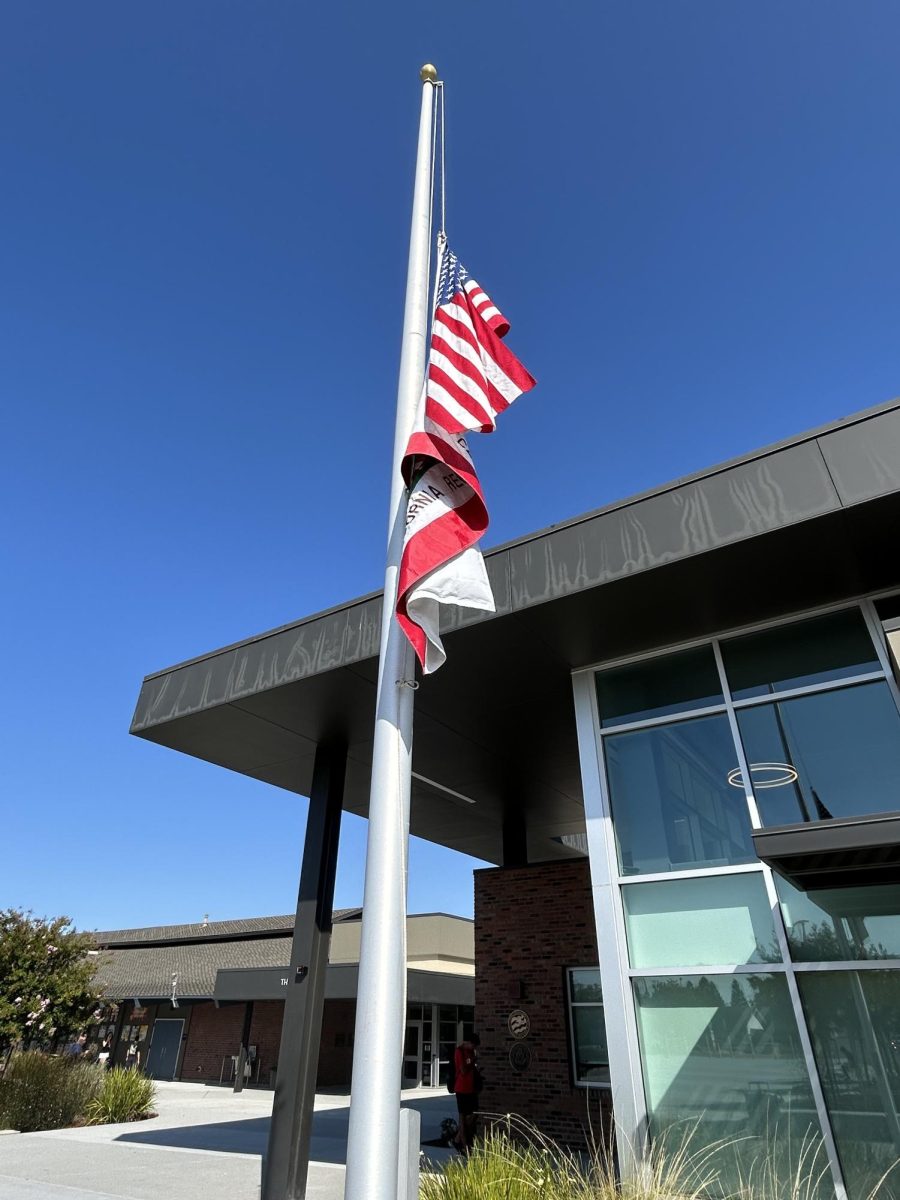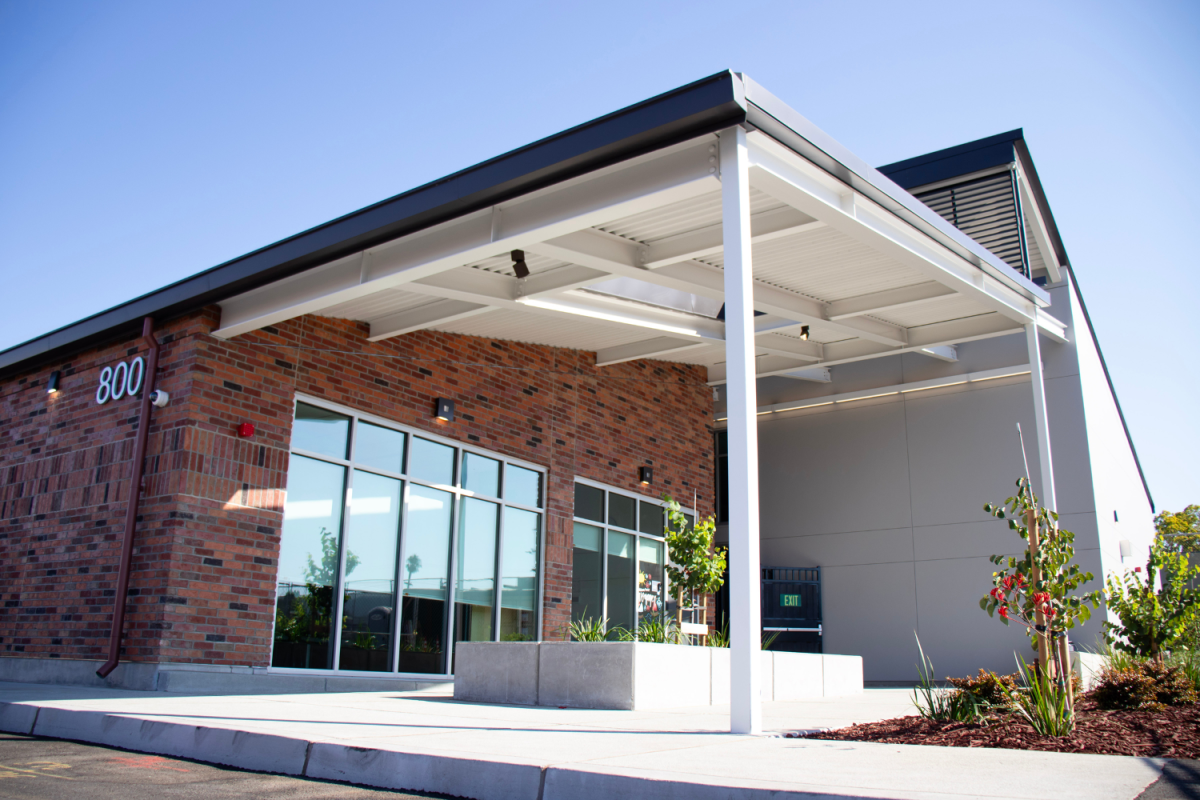Evolving from ancient letters that protected diplomats to today’s biometric booklets, passports are crucial tools that shape international currents of movement, access and opportunity. Beyond just airport routine, they reveal the dynamics of global systems, national power and individual identity — all in a booklet in the palm of your hand.
Passports reflect a citizen’s specific identity and nationality. Containing information like one’s official name, date of birth and biological sex, they are powerful stamps of personhood that assert the legal existence of their holders.
At the same time, they represent global mobility. For dual passport holders, this can be an advantage. Dual passports have risen in popularity as more countries recognize them and more children inherit second citizenships from foreign-born, immigrant parents. Dual citizenship grants increased freedom of movement and a safety net for national instability.
“Especially in times of deep political conflict, it’s not surprising for people to go and try to get a second passport, because if you hold multiple passports, it’s like holding a pocket knife where you have many things at your disposal,” social studies teacher Jeff Bale said. “It puts you in a stronger position than if you had a single passport.”
Cosmopolitan opportunities like dual citizenship are supported by a unified system that functions across countries. Global passport standards, regulated by the International Civil Aviation Organization, ensure that countries can efficiently track who crosses their borders and where their citizens go.
While universal in format, passports are not universal in power. A developed country’s passport generally grants more travel privileges than that of a developing country, revealing a geopolitical ranking that both expands and limits global opportunity.
“It is the truth that people with certain passports just do not have the same ability to travel or study abroad in some countries as people with other passports,” Bale said. “It’s not an even playing field by any measure.”
Today’s passport system is the product of millennia of evolution. As early as biblical times, rulers issued safe conduct passes that protected diplomats in foreign lands. Moving across international borders required little to no documentation, but the costs and time involved limited travel mostly to the wealthy.
“Passports were traditionally more associated with more formal diplomacy as kind of, ‘My leader, my ruler, handed me the authority to speak on their behalf,’” said Alison Holmes, professor of politics and international studies at California Polytechnic State University, Humboldt. “Historically, we didn’t have passports for a really long time. International boundaries were much more fluid.”
Passports gained widespread use when European countries sought to manage border crossings and prevent espionage during World War I, laying the groundwork for the modern passport system. Following the 1919 Treaty of Versailles, the League of Nations looked to abolish passports for limiting freedom of movement.
Ultimately, the League of Nations was unsuccessful in achieving its goal. Governments were unwilling to give up border restrictions due to security risks and migration control. However, their efforts resulted in international guidelines on the first versions of passports that still impact the world today.
“As we started to formalize the infrastructure and governance structures of the international system, passports rose as part of how we do that,” Holmes said. “Like a driver’s license, a passport gives me some ability to assert my identity in a space which is not my own domestic space.”
After the 9/11 attacks, the United States strengthened immigration laws, fortified domestic and border security and implemented stricter screening processes.
“When you have global problems, you see them tighten the screws first at access points, entry points,” Holmes said. “9/11 made it possible for states to be much more protective of their borders and for everybody to just take it.”
Passport strength refers to how easily holders of a country’s passport can go abroad. Strong passports grant visa-free or visa-on-arrival privileges for many states, streamlining travel. On the other hand, weak passports can effectively confine holders to a lifetime within national borders.
Passports of the Global South — which includes underdeveloped regions, like former colonies in Africa and South America — are disproportionately weaker than those of the Global North. Dating back to the early modern era, industrialization and imperialism started putting the West ahead of the rest of the world economically. Today, citizens from the Global North — which consists of wealthier, more developed regions like North America, Europe and North Asia — enjoy stronger passports. The Global North’s positive attributes, from political stability to high gross domestic product, mean its citizens are seen as more trustworthy travelers and less likely to overstay visas or cause trouble. However, would-be travelers, including refugees, workers and students, from the turbulent Global South are often seen as national security risks by their desired destination countries.
“Countries that are first-world democracies and high-income countries — those are the countries that people naturally want to get into,” Bale said. “And so it’s a scarcity game: the harder it is to obtain a passport, the more valuable it is.”
For example, a Singapore passport unlocks visa-free access to 192 countries, thanks to appealing factors like its diplomatic ties and high GDP, according to the Henley Passport Index. On the other end of the spectrum is war-torn Yemen; only 31 countries accept its passport visa-free.
“If there is an active war, you don’t want to give people who are participating in a war easy access to leave the country and enter other countries,” history teacher Luca Signore said.
Global dynamics also fuel special travel agreements between certain countries. The 1985 Schengen Agreement allows European Union residents to travel passport-free between 29 European countries. Historically, France has signed many bilateral migration agreements with its former African colonies, obtaining labor while granting temporary residence to African immigrants.
As globalization extends its reach, passports undergo many changes and reforms. Future travelers might experience lower travel requirements and faster border crossings through technology like e-passports.
“In a globalized era, passports are much more likely to broaden in the long run,” Bale said. “I think something like the European Union, where you have free access to all the countries, is much more likely to be the way in the future than the other way around.”
Currently, passports also represent forced immobility and gates to access. They are the ultimate emblems of globalization’s double-edged sword, revealing a modern world that spills across physical borders, yet splinters across barriers to access.






































































